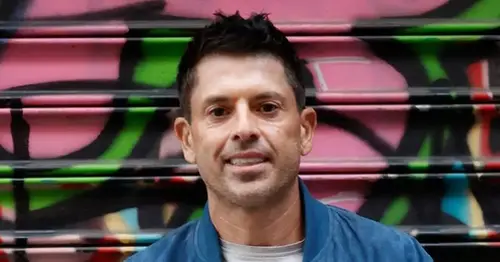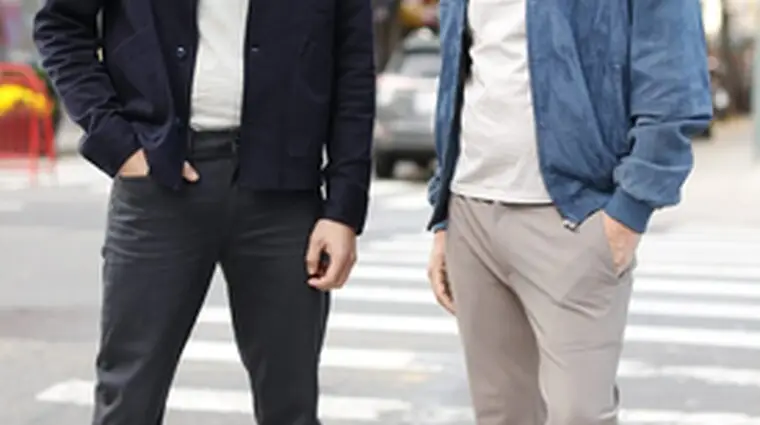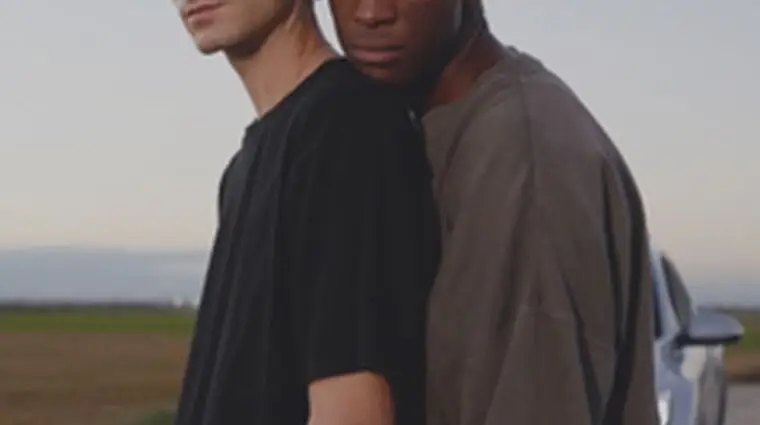
Over a decade after founding Grindr, Joel Simkhai wants a do-over
When Joel Simkhai left Grindr five years ago, he had a lot of time to think.
Simkhai, a gay man and tech entrepreneur, helped launch the groundbreaking gay hookup and dating app in 2009. Grindr, which piloted geolocation software to show users’ distance from one another, fundamentally changed queer culture.
By retrofitting gay social and romantic interactions to the digital age, Grindr brought millions of people together in ways that gay bars — the longtime focal points of LGBTQ social scenes — simply couldn’t. But under Simkhai’s watch, it also laid bare, and some say worsened, the physical and racial discrimination that has long plagued the gay community.
Now, more than a decade later, he wants a do-over.

Simkhai launched a queer dating and hookup app this month called Motto, which he says has innovative features to help prevent the “toxicity” and “discrimination” that have cast shadows over other gay dating apps, including the one he spearheaded, amid a barrage of controversies for the better part of the last decade.
By requiring its users to have face pictures instead of “headless torsos” and limiting time spent on the app by serving users no more than 10 profiles a day, Motto differs from Grindr, Simkhai said. He also said Motto provides more profile information and requires a verification process for every user to increase safety and protect against harassing bots, which infect many dating apps.
As recently as this year, the average daily time spent on Grindr per user was about an hour, according to The Guardian. The results of an online survey of nearly 100 Grindr users published in 2017 in the peer-reviewed journal Behavioral Medicine showed obese users reported significantly greater feelings of body dissatisfaction. A 2019 study published in another peer-reviewed journal, Body Image, reached similar conclusions, finding that Grindr’s app-specific features affect bodily perceptions among men who have sex with men.
Simkhai said that amid allegations in recent years of transphobia, sexual racism and fat shaming, his creation had unintended consequences. He said he takes responsibility for them.
“At Grindr I was obviously aware of these issues, and it was tough to solve for a number of reasons,” he said. “Leaving Grindr and having a chance to think about these things, I thought about ‘what do I want my legacy to be?’”

Simkhai called Motto, which has already launched in New York City, his chance to “course-correct.” The company is still building up its team, and it isn’t making its user numbers public yet, he said.
Grindr, meanwhile, continues to dominate the gay dating app space, with about 11 million monthly active users around the world last year, according to a company news release. It also just brought on a CEO who plans to take the company public soon with an ambitious $2.1 billion valuation.
“While we’ll never stop working to deliver for our users, we are proud of what we’ve done, particularly in the past two years, to make Grindr a supportive platform where our community can freely and comfortably connect,” Patrick Lenihan, Grindr’s vice president and head of communications, said in a statement.
Grindr launched a video campaign this month to clear up “misconceptions” about its user experience and educate people about the app’s safety features and content moderation. A news release from the company said users have the ability to mute, block and report “bad actors” to improve their experience, and it said those reports are reviewed around the clock by a moderation team that operates with 99% accuracy and has been trained in “LGBTQ-specific cultural sensitivities and gender-inclusive content moderation.” The company also noted that Grindr includes audio and video chatting features that can help avoid catfishing.
In 2018, the year Simkhai left Grindr, its head of communications at the time said online discrimination had reached “epidemic proportions.” At the time, the company acknowledged that Grindr was one of a number of social networking apps affected by the trend, and it launched an awareness initiative that year called “Kindr,” which included a revamp of its community guidelines to combat sexual racism.
But racist, discriminatory and exclusionist tropes — or euphemisms for them — continue to pervade a number of LGBTQ hookup and dating apps. In many ways, they reflect the racism, discrimination and exclusion that persist more broadly within gay culture, particularly among white, cisgender men. In fact, this was a theme of this summer’s groundbreaking film “Fire Island,” which called particular attention to a racist phrase — “no fats, no femmes, no Asians” — that is still pervasive on gay dating apps through coded language, despite content moderation and discrimination policies.
Last year, a group of HIV- and STD-prevention agencies partnered with the owners of nine dating websites and apps, including Grindr, to “reduce stigmatizing language” on their platforms that contribute to body shaming, sexism and anti-HIV discrimination. The group surveyed 5,500 people who regularly used at least one of the apps meant for gay, bisexual, transgender and queer people. The result was a series of recommendations, among them that the app prioritize users who are the most vulnerable to prejudice, provide incentives for people to complete their profiles and rethink having users pay to block more profiles.
“While gay, bi, and trans people have long been subjected to discrimination, stigma and hate speech from outside our communities, the way we treat each other online can also cause harm,” the report said.
It’s a concept that has informed much of the discussion in recent years about how to reform gay dating apps geared toward LGBTQ people, who, like everyone else, continue to grapple with the complicated role social media plays in the community — despite the refuge it can provide from heteronormative culture.
“Culture changes, for the good and the bad,” Simkhai said.
As for Motto, he said, the platform plans to “put the user first.”
“We think there’s a better way.”






